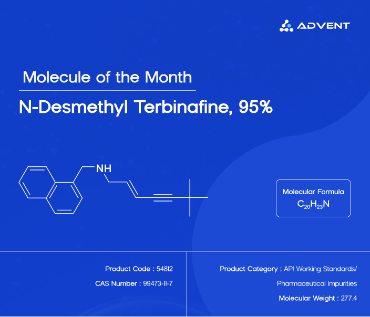Pharmaceutical manufacturing is a science of precision, where every input must meet exacting standards to ensure the safety and efficacy of the final product. Among the many tools used to ensure quality, the Certificate of Analysis (CoA) plays a foundational role.
It provides verified documentation that a pharmaceutical product meets its required quality specifications. In this blog, we explore what a CoA is, what it includes, and—most importantly—why pharmaceutical companies absolutely require it for every material, chemical, and batch they handle.
What Is a Certificate of Analysis (CoA)?
A Certificate of Analysis (CoA) is an official document issued by a manufacturer, supplier, or third-party testing lab. It outlines the identity, purity, strength, and quality of a specific batch or lot of a material. For pharmaceutical companies, this typically includes:
Product name
Batch or lot number
Date of manufacture and expiry
Specifications tested
Test methods used
Results of each test
Signature of the quality control or QA personnel
A CoA confirms that the tested sample complies with pharmacopeial standards such as USP, EP, JP, BP, or specific regulatory requirements (e.g., ICH, WHO, US FDA).
Why Is a CoA Crucial in the Pharmaceutical Industry?
1. Acts as a Quality Benchmark for Incoming Raw Materials
Pharmaceutical products are only as good as the raw materials used to make them. A CoA serves as the first checkpoint for quality control. When raw materials like active pharmaceutical ingredients (APIs), excipients, or fine chemicals are received, their accompanying CoA allows the quality assurance team to validate that they meet the manufacturer’s and pharmacopeial standards before use.
2. Supports Supplier Qualification and Risk Assessment
A consistent, well-documented CoA history allows pharma companies to evaluate the reliability of their suppliers. Suppliers who consistently provide materials with compliant CoAs are more likely to be approved for long-term contracts. Conversely, inconsistent or inaccurate CoAs may raise red flags about a supplier’s manufacturing or testing practices—making CoAs critical for supplier risk management.
3. Enables Cross-Verification through In-House QC Testing
Most pharmaceutical companies conduct in-house quality control (QC) testing to cross-verify CoA data. The CoA acts as a reference document, allowing labs to compare test results and detect discrepancies early. This dual-layer verification system ensures that materials are not only tested by the supplier but also independently validated before being accepted.
4. Facilitates Regulatory Submissions and Dossier Filing
When pharma companies file regulatory submissions (like ANDAs or NDAs), CoAs are often required for CMC (Chemistry, Manufacturing, and Controls) sections. These documents help regulators understand the quality profile of materials used, especially when submitting to stringent authorities like the US FDA, EMA, or CDSCO. A missing or inadequate CoA can delay the approval process.
5. Aids in Stability Studies and Shelf-Life Determination
A CoA offers initial data points for tracking the stability and degradation of raw materials and finished products over time. This is particularly important when conducting ICH stability studies. Without an accurate CoA, it would be difficult to evaluate how a product changes under various environmental conditions.
6. Strengthens Product Recalls and CAPA Investigations
In the rare event of a product recall or deviation, the CoA provides vital data for root cause analysis. It helps determine if an issue originated from the raw material, the manufacturing process, or improper storage. As such, it’s an essential tool in Corrective and Preventive Action (CAPA) programs.
7. Streamlines Global Trade and Customs Clearance
When shipping pharmaceutical ingredients across borders, CoAs are often required for customs clearance and international trade compliance. They help ensure that materials comply with the health and safety standards of the importing country, thereby reducing the risk of shipments being held up or rejected at customs.
8. Drives Internal Documentation and Data Integrity
Modern pharmaceutical companies are built around data integrity and audit trails. CoAs are included in batch records, master production documents, and audit-ready folders. They support transparent manufacturing practices and help companies stay inspection-ready at all times.
How Advent Supports Pharma Companies with Trusted CoAs
At Advent, quality and transparency go hand in hand. As a reliable manufacturer and distributor of fine and specialty chemicals, Advent provides a Certificate of Analysis with every batch delivered—detailing precise specifications, test methods, and results validated by our expert quality control teams. Each CoA is batch-specific, pharmacopeia-compliant (USP, EP, JP, or customer-defined), and supports regulatory traceability from the very first step. For pharmaceutical companies, this translates into fewer delays in raw material approval, stronger compliance documentation, and more confidence during audits and inspections. By offering consistent, verified CoAs, Advent doesn’t just deliver chemicals—it delivers peace of mind to quality-driven pharma manufacturers.
Summing it Up!
In a pharmaceutical ecosystem driven by quality, documentation, and compliance, the Certificate of Analysis is more than just paperwork—it’s a quality backbone. From batch approval to international trade, regulatory filing to risk mitigation, the CoA ensures that every material entering the production line is tested, traceable, and trustworthy.
Because in pharma, it’s not enough to say something meets the standard—you have to prove it, and that proof begins with the CoA.




